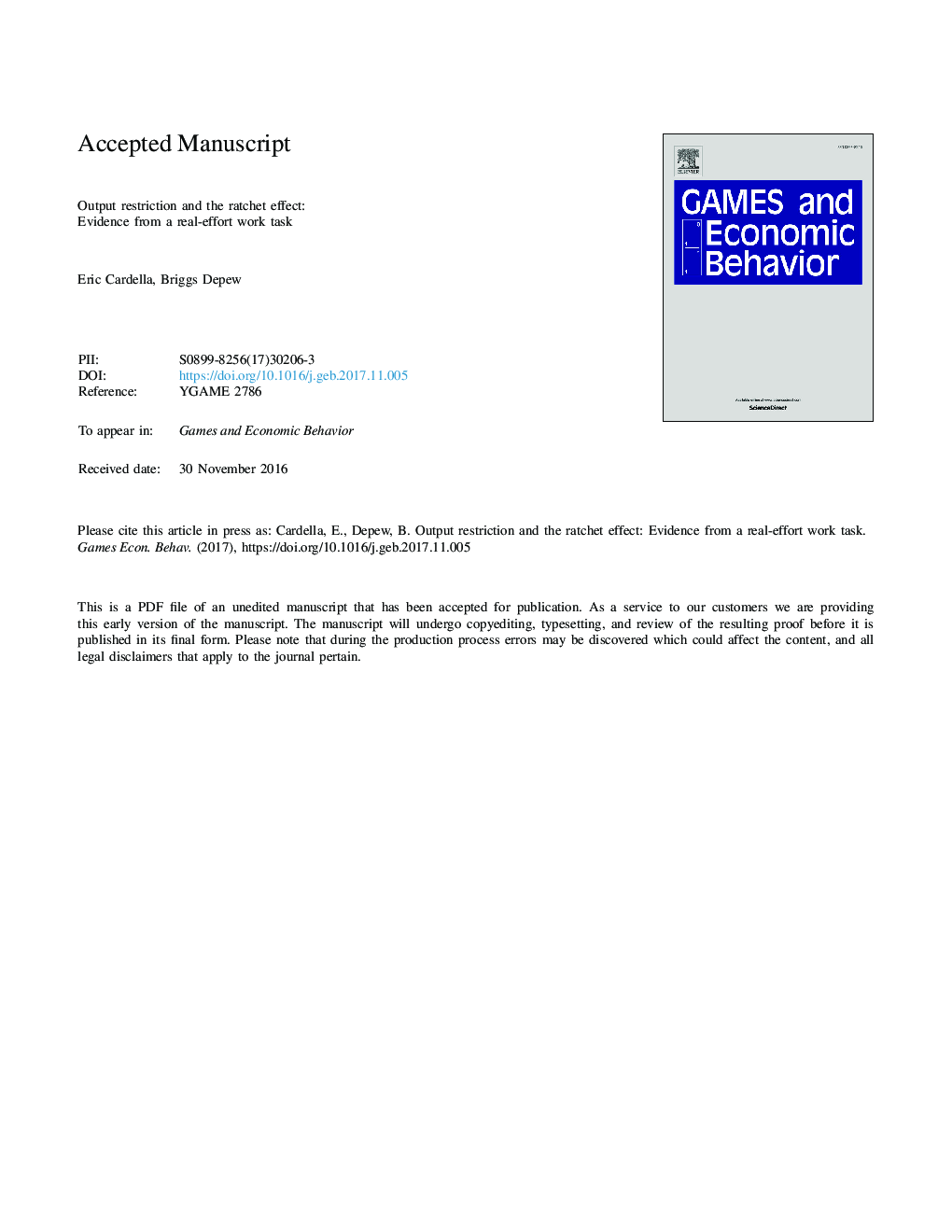| Article ID | Journal | Published Year | Pages | File Type |
|---|---|---|---|---|
| 7352996 | Games and Economic Behavior | 2018 | 50 Pages |
Abstract
The “ratchet effect” is a phenomenon where workers strategically restrict their output because they anticipate high levels of productivity will be met with increased expectations in the future. Using a real-effort work task and a piece-rate incentive scheme, we investigate the presence of the ratchet effect using two different methods for evaluating worker productivity: (i) when productivity is evaluated individually, and (ii) when productivity is evaluated collectively among a group of workers. We find strong evidence that workers restrict output when productivity is evaluated individually. However, we find little evidence of output restriction when productivity is evaluated at the group-level, which we attribute to the coordination problem and the free-riding incentive that emerge within the group. Although, output restriction re-emerges if workers are able to communicate. We also examine an important dynamic implication of the ratchet effect, and our results indicate that output restriction reduces future productivity through reduced learning-by-doing.
Related Topics
Social Sciences and Humanities
Economics, Econometrics and Finance
Economics and Econometrics
Authors
Eric Cardella, Briggs Depew,
